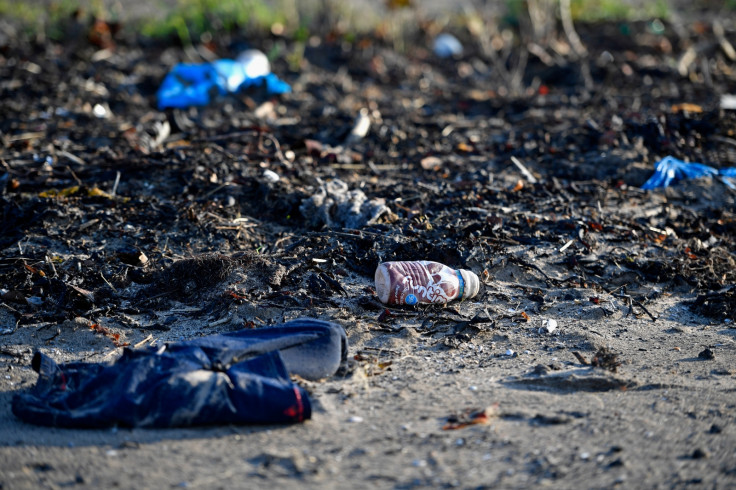What are nurdles? Billions of tiny plastic 'lentils' litter UK beaches and they're harming wildlife
The Great Nurdle Hunt found that almost three quarters of the British shoreline is blighted by plastic.

A big survey of Britain's shorelines found that 73% of beaches are blighted by what are called "nurdles" — as many as 53 billion of them, according to an estimate.
"Nurdles are small plastic pellets about the size of a lentil," says the website of The Great Nurdle Hunt, which conducted the survey with 600 volunteers on a weekend in February, and is run by Scottish environmental charity Fidra.
"Countless billions are used each year to make nearly all our plastic products but many end up washing up on our shores."
For all sorts of reasons, accidental or deliberate, these tiny nurdles end up in the sea where they can be incredibly harmful to wildlife. Plastics in the sea "attract toxins called Persistent Bioaccumulating Toxins (PBTs) to their surface," says Fidra.
"Most PBTs are industrial chemicals which can accumulate in animal and human tissue causing long-term damage.
"Plastics act like a sponge for these toxins and can concentrate them to levels millions of times higher than the surrounding sea water. Most PBTs are highly dangerous banned substances. Although current manufacture has been reduced, these chemicals continue to persist in the marine environment."
For example, chemicals containing polychlorinated biphenyl (PCBs) were banned by the UK in 2000, but are still used in some parts of the world, primarily as electrical heaters and industrial coolants. So new PCBs are added to the oceans on top of those which entered in the past. Research suggests they can cause cancer and developmental abnormalities in animals.
4 reasons to continue to look closely & record #plastiglomerates #nurdles #Microplastics along our strandlines @CleanCoasts @greatnurdler pic.twitter.com/vnlr2x5q2t
— Littoral Art (@LittoralArt) February 7, 2017
Nurdles don't biodegrade, either. They fragment into smaller and smaller pieces until they are microscopic, and are consumed by marine wildlife along with all the toxins. Not only can this kill the wildlife, and send species numbers into decline, but as humans eat marine creatures we can also ingest the plastics and their toxins, causing all sorts of health issues for us.
The research firm Eunomia was commissioned by Fidra to study how many plastic pellets end up lost in the UK alone. It believes as many as 53 billion are lost annually, equivalent to 35 tanker loads.
2/2 ...which is why @mcsuk delighted to support https://t.co/BKi9TwJC9h & https://t.co/uj9hAON22W by @FidraTweets https://t.co/zbgNOXMlnj pic.twitter.com/FxxjiX2Hng
— Calum Duncan (@CalumDuncanMCS) February 15, 2017
"Unfortunately, there is no way to clean them up once at sea, so we must make sure no further pellets are released," said Dr Madeleine Berg, projects officer at Fidra.
"Pellet loss is an entirely avoidable source of pollution, and at Fidra we aim to work with industry to stop it for good. Operation Clean Sweep is an industry-devised scheme supported by the British Plastics Federation and Plastics Europe, which allows companies to pledge their commitment to zero pellet loss.
"We encourage local companies to sign up to the scheme and many share our concern for the issue."
A government consultation on plastic microbeads closes on 28 February. "The purpose of this consultation is to seek views on our proposals to ban the manufacture and sale of cosmetics and personal care products containing microbeads which may harm the marine environment," said the Department for the Environment, Food and Rural Affairs (Defra).
The company Johnson & Johnson has already committed to stop selling plastic cotton buds in half of the countries it currently does in an effort to stop so many ending up in the sea.
© Copyright IBTimes 2024. All rights reserved.






